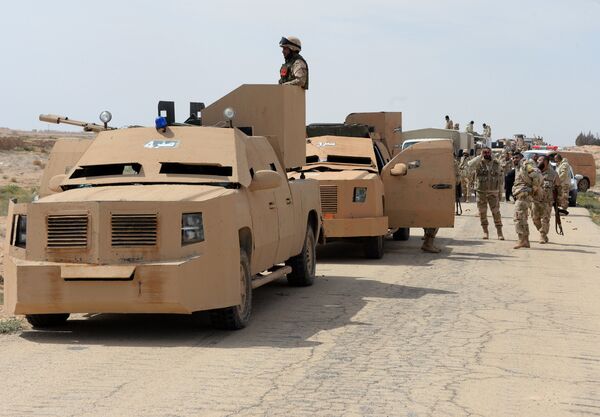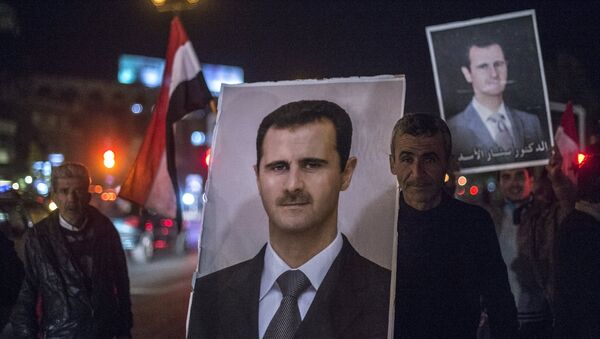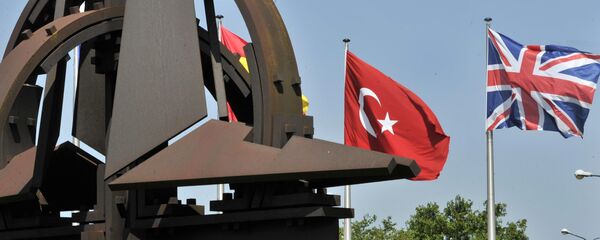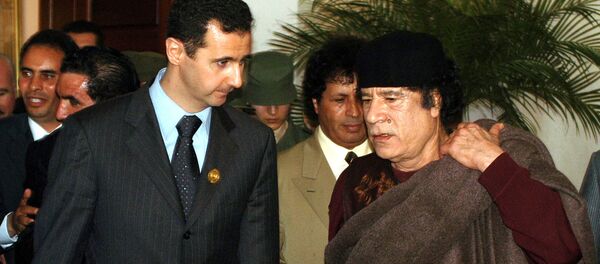What previously seemed to be just a set of circumstances have turned out to be elements of a highly thought-out and well-orchestrated project.
Nothing hinted at any trouble back in 2006, when US Ambassador to Syria William Roebuck sent a cable to the White House describing "potential vulnerabilities" of the Assad government and the "possible means to exploit them."
For instance, Roebuck proposed to play on Sunni fears of Iranian influence.
"Though often exaggerated, such fears reflect an element of the Sunni community in Syria that is increasingly upset by and focused on the spread of Iranian influence in their country through activities ranging from mosque construction to business. Both the local Egyptian and Saudi missions here, (as well as prominent Syrian Sunni religious leaders), are giving increasing attention to the matter and we should coordinate more closely with their governments on ways to better publicize and focus regional attention on the issue," the Ambassador wrote.
Interestingly enough, Riyadh and Cairo were supposed to play an important role in the Washington-led conspiracy against Bashar al-Assad.
According to Pulitzer-prize winning investigative journalist Seymour Hersh, following the US invasion of Iraq Saudi Arabia persuaded Washington to crackdown on Iran and its allies in the region (the Shiite crescent), most notably Assad's Syria.
"The Saudis have considerable financial means, and have deep relations with the Muslim Brotherhood and the Salafis — Sunni extremists who view Shiites as apostates," Hersh wrote in his article for The New Yorker in 2007, citing Vali Nasr, a senior fellow at the Council on Foreign Relations and expert in Middle Eastern affairs.

Summing up the results of their "business trip" to the Syrian Arab Republic, Ross wrote: "When Jared and I went to Syria, it was because we knew that Syrian society was growing increasingly young (population will double in 17 years) and digital and that this was going to create disruptions in society that we could potential harness for our purposes."
Clark turns the spotlight on the fact that "those 'purposes' were of course 'regime change' and to break Syria's alliance with Iran."
In summer 2012, when the Syrian conflict spun out of control political aide Sidney Blumenthal wrote to Hillary Clinton:
"The fall of the House of Assad could well ignite a sectarian war between the Shiites and the majority Sunnis of the region drawing in Iran, which, in the view of Israeli commanders would not be a bad thing for Israel and its Western allies."

Nearly simultaneously president of 'Google Ideas' Jared Cohen offered the State Department a new digital tool aimed at bolstering defections from the Syrian government, Clark notes.
"Our logic behind this is that while many people are tracking the atrocities, nobody is visually representing and mapping the defections, which we believe are important in encouraging more to defect and giving confidence to the opposition," Cohen wrote.
"Internally, events are taking a clear sectarian direction. The Salafists, the Muslim Brotherhood and AQI [al-Qaeda in Iraq] are the major forces driving the insurgency in Syria… AQI supported the Syrian opposition from the beginning, both ideologically and through the media" the DIA report read.
However, it did not prevent the Obama administration from continuing their operation. They were fully aware of what forces they were playing with.
In 2015, in an interview with Al-Jazeera Michael Flynn, former head of the US Defense Intelligence Agency (DIA), confirmed that that it was a "willful decision" of the Obama administration to team up with Salafists, al-Qaeda and the Muslim Brotherhood in Syria back in 2012.
"I don't know that they turned a blind eye, I think it was a decision. I think it was a willful decision," Flynn said.
"WikiLeaks confirms that — as was the case in Libya and Iraq — almost everything about the official "western establishment" version of the war in Syria was false," Clark underscores.
"Far from being an innocent bystander, the US went out of its way to destabilize the country and exploit ethnic and religious divisions," he stresses.





